Lexicology Lecture 1. The subject matter of
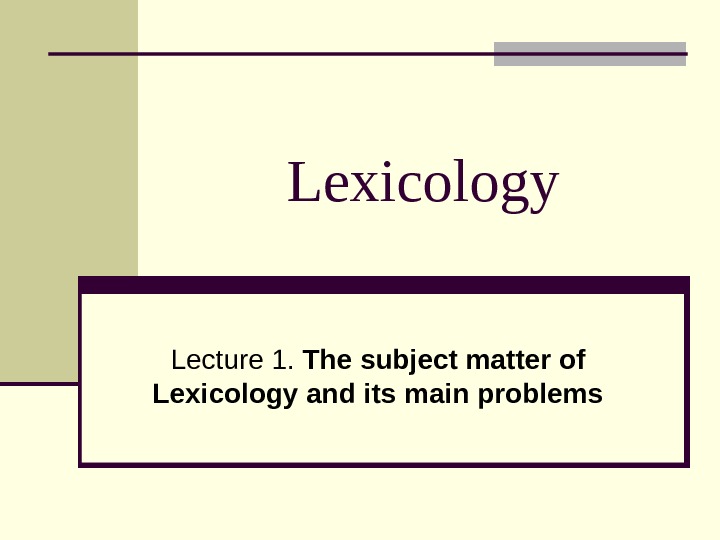
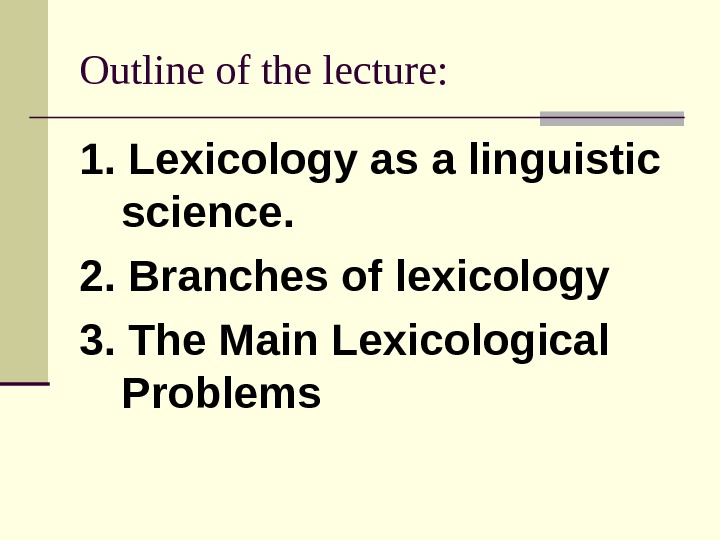
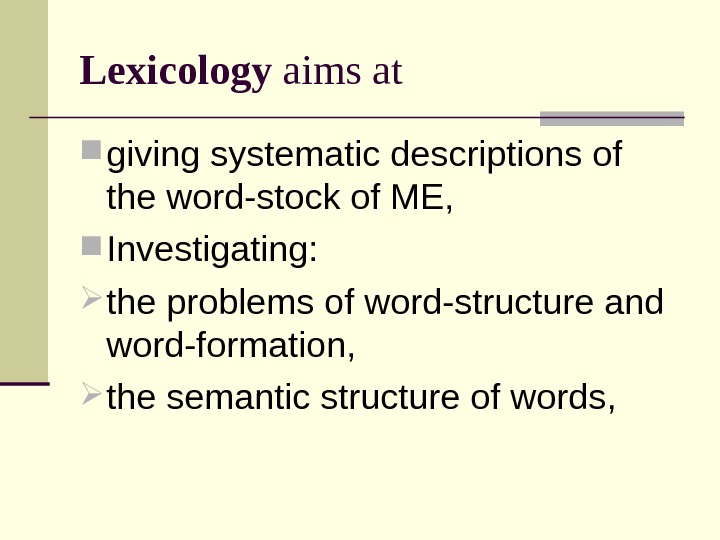
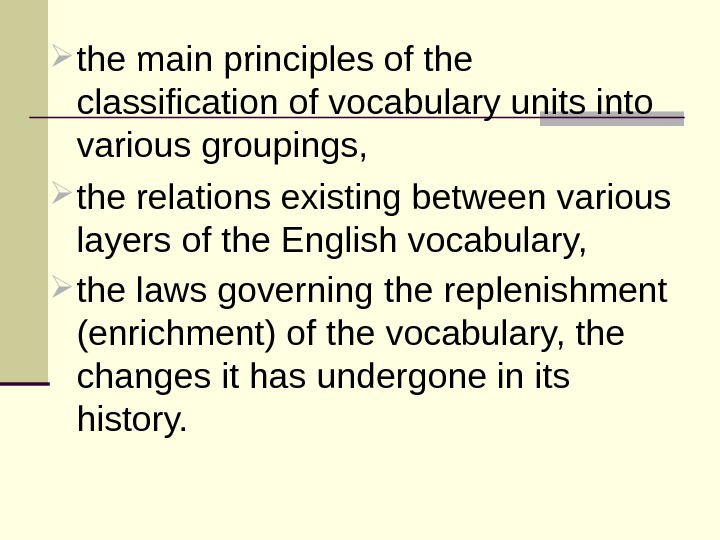
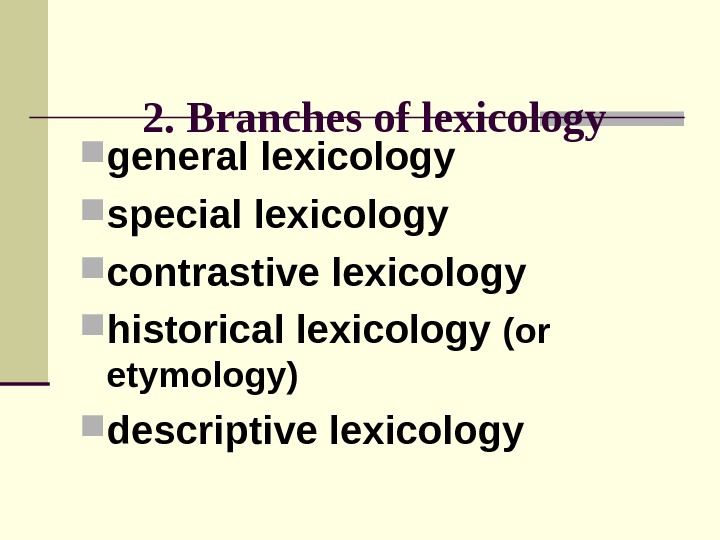
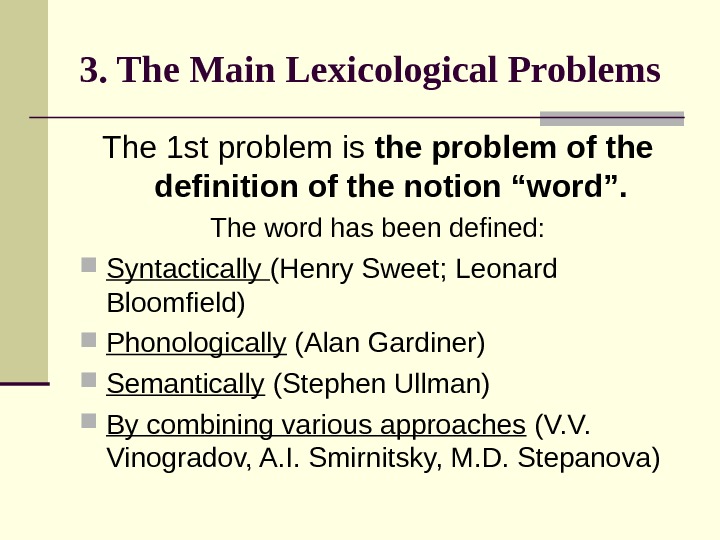

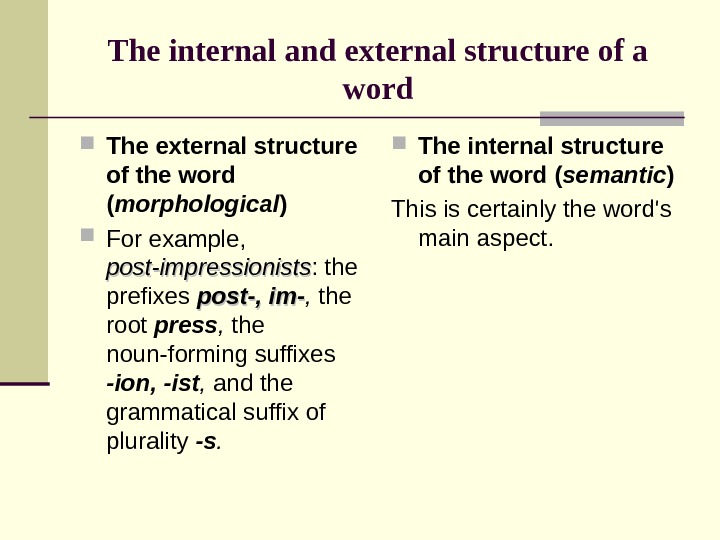
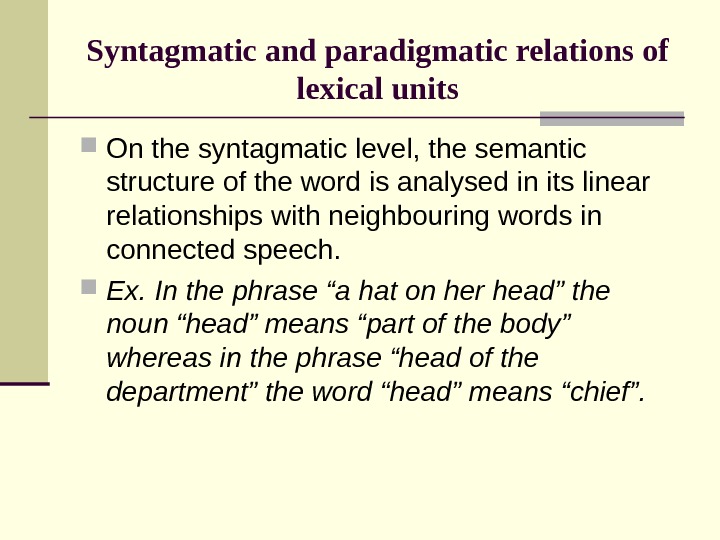
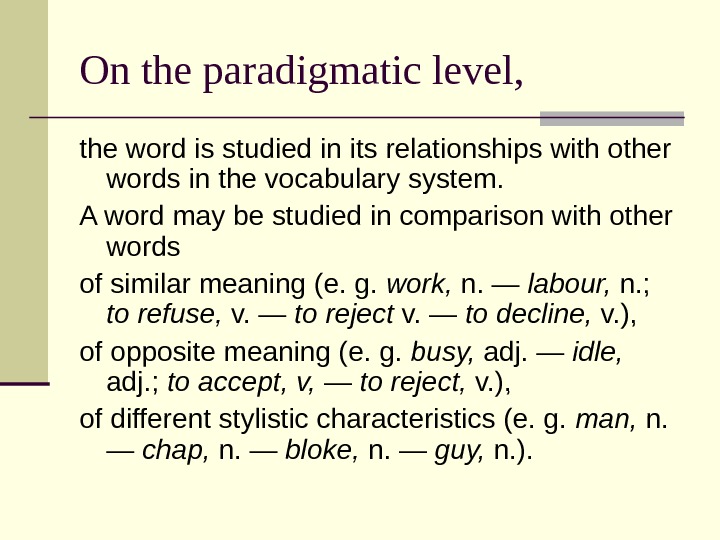
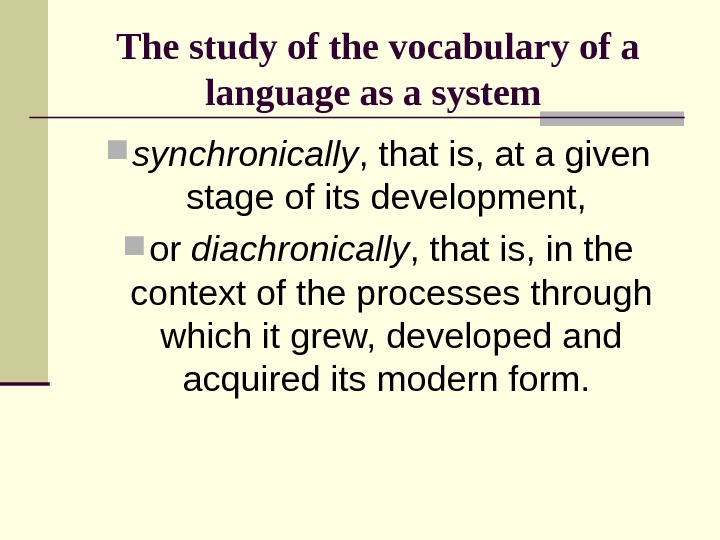
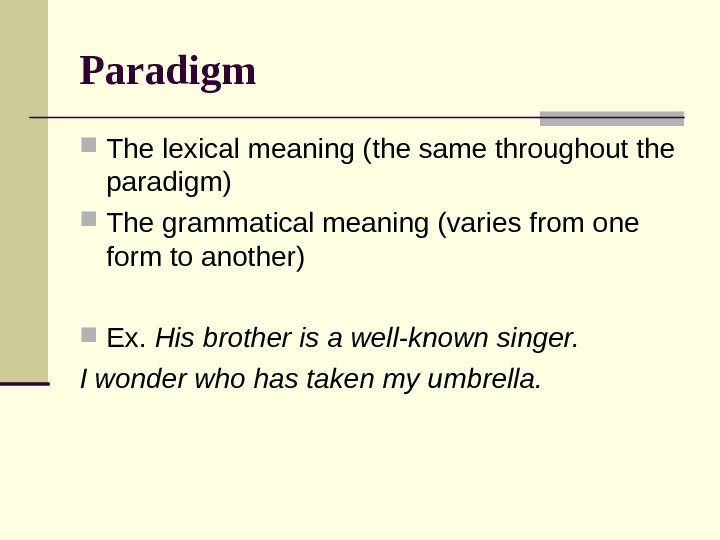
- Размер: 177 Кб
- Количество слайдов: 12
Описание презентации Lexicology Lecture 1. The subject matter of по слайдам
 Lexicology Lecture 1. The subject matter of Lexicology and its main problems
Lexicology Lecture 1. The subject matter of Lexicology and its main problems
 Outline of the lecture: 1. Lexicology as a linguistic science. 2. Branches of lexicology 3. The Main Lexicological Problems
Outline of the lecture: 1. Lexicology as a linguistic science. 2. Branches of lexicology 3. The Main Lexicological Problems
 Lexicology aims at giving systematic descriptions of the word-stock of ME, Investigating: the problems of word-structure and word-formation, the semantic structure of words,
Lexicology aims at giving systematic descriptions of the word-stock of ME, Investigating: the problems of word-structure and word-formation, the semantic structure of words,
 the main principles of the classification of vocabulary units into various groupings, the relations existing between various layers of the English vocabulary, the laws governing the replenishment (enrichment) of the vocabulary, the changes it has undergone in its history.
the main principles of the classification of vocabulary units into various groupings, the relations existing between various layers of the English vocabulary, the laws governing the replenishment (enrichment) of the vocabulary, the changes it has undergone in its history.
 2. Branches of lexicology general lexicology special lexicology contrastive lexicology historical lexicology (or etymology) descriptive lexicology
2. Branches of lexicology general lexicology special lexicology contrastive lexicology historical lexicology (or etymology) descriptive lexicology
 3. The Main Lexicological Problems The 1 st problem is the problem of the definition of the notion “word”. The word has been defined: Syntactically (Henry Sweet ; Leonard Bloomfield) Phonologically (Alan Gardiner) Semantically (Stephen Ullman) By combining various approaches ( V. V. Vinogradov, A. I. Smirnitsky, M. D. Stepanova )
3. The Main Lexicological Problems The 1 st problem is the problem of the definition of the notion “word”. The word has been defined: Syntactically (Henry Sweet ; Leonard Bloomfield) Phonologically (Alan Gardiner) Semantically (Stephen Ullman) By combining various approaches ( V. V. Vinogradov, A. I. Smirnitsky, M. D. Stepanova )
 The word is a speech unit used for the purposes of a human communication, materially representing a group of sound possessing a meaning susceptible to grammatical employment and characterised by formal and semantic unity.
The word is a speech unit used for the purposes of a human communication, materially representing a group of sound possessing a meaning susceptible to grammatical employment and characterised by formal and semantic unity.
 The internal and external structure of a word The external structure of the word ( morphological ) For example, post-impressionists : the prefixes post-, im- , the root press , the noun-forming suffixes -ion, -ist , and the grammatical suffix of plurality -s. The internal structure of the word ( semantic ) This is certainly the word’s main aspect.
The internal and external structure of a word The external structure of the word ( morphological ) For example, post-impressionists : the prefixes post-, im- , the root press , the noun-forming suffixes -ion, -ist , and the grammatical suffix of plurality -s. The internal structure of the word ( semantic ) This is certainly the word’s main aspect.
 Syntagmatic and paradigmatic relations of lexical units On the syntagmatic level, the semantic structure of the word is analysed in its linear relationships with neighbouring words in connected speech. Ex. In the phrase “a hat on her head” the noun “head” means “part of the body” whereas in the phrase “head of the department” the word “head” means “chief”.
Syntagmatic and paradigmatic relations of lexical units On the syntagmatic level, the semantic structure of the word is analysed in its linear relationships with neighbouring words in connected speech. Ex. In the phrase “a hat on her head” the noun “head” means “part of the body” whereas in the phrase “head of the department” the word “head” means “chief”.
 On the paradigmatic level, the word is studied in its relationships with other words in the vocabulary system. A word may be studied in comparison with other words of similar meaning (e. g. work, n. — labour, n. ; to refuse, v. — to reject v. — to decline, v. ), of opposite meaning (e. g. busy, adj. — idle, adj. ; to accept, v, — to reject, v. ), of different stylistic characteristics (e. g. man, n. — chap, n. — bloke, n. — guy, n. ).
On the paradigmatic level, the word is studied in its relationships with other words in the vocabulary system. A word may be studied in comparison with other words of similar meaning (e. g. work, n. — labour, n. ; to refuse, v. — to reject v. — to decline, v. ), of opposite meaning (e. g. busy, adj. — idle, adj. ; to accept, v, — to reject, v. ), of different stylistic characteristics (e. g. man, n. — chap, n. — bloke, n. — guy, n. ).
 The study of the vocabulary of a language as a system synchronically , that is, at a given stage of its development, or diachronically , that is, in the context of the processes through which it grew, developed and acquired its modern form.
The study of the vocabulary of a language as a system synchronically , that is, at a given stage of its development, or diachronically , that is, in the context of the processes through which it grew, developed and acquired its modern form.
 Paradigm The lexical meaning (the same throughout the paradigm) The grammatical meaning (varies from one form to another) Ex. His brother is a well-known singer. I wonder who has taken my umbrella.
Paradigm The lexical meaning (the same throughout the paradigm) The grammatical meaning (varies from one form to another) Ex. His brother is a well-known singer. I wonder who has taken my umbrella.
